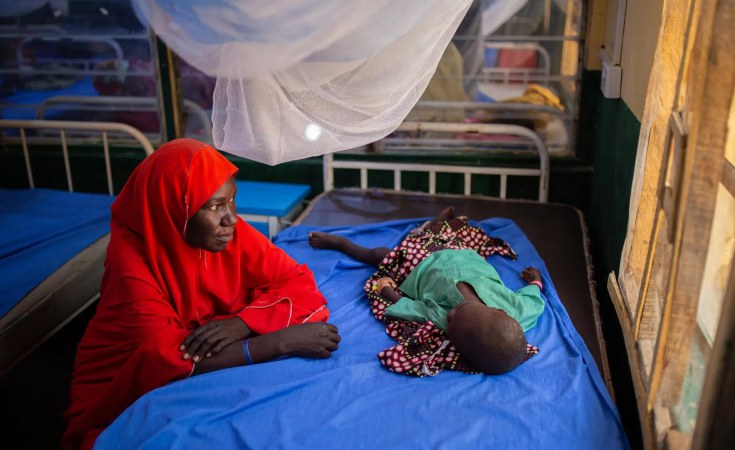Abuja, Nigeria — Thursday, April 25, marked World Malaria Day, a day to mark progress against the deadly disease. In Nigeria, that progress is being threatened by soaring drug costs caused by inflation, a poor exchange rate and the exit of pharmaceutical companies. Nigeria accounts for 27% of the global malaria burden -- the highest in the world.
Two months ago, Abuja resident Damian Gaau came down with fever. He immediately suspected malaria and went to a local clinic for treatment.
But he says the price of his regular anti-malarial medicine had more than doubled.
"Before, I can use a little amount of money to get some drugs to care for my malaria but now, everything is cost [expensive] even to get medicine is not easy, for you to get medicine you age to take half of your salary before you get drugs to treat yourself," said Gaau.
Gaau says to get the care he needed, he had to forgo other necessities.
"The increase of the medicine has cost me a lot, like I have to cut down some of my expenses to get some drugs for myself, even to buy food, clothes, all those kinds of stuff I have to cut down from there to get my medicine," said Gaau.
The World Health Organization (WHO) says Africa accounted for about ninety five percent of malaria cases and deaths globally in 2021. That year, Nigeria reported 194,000 deaths from the mosquito-borne disease, more than any other country.
Health experts say pregnant women and children younger than five are most at risk of the disease and access to affordable treatment and poverty are some of the reasons malaria cases are high.
"What has driven up all the prices is the exchange rate. Almost 70% of medicines we use in this country are imported if not more. Most of the pharmaceutical companies working in Nigeria, some of them are closing up and leaving so that means the foreign exchange component is very high so if the dollar to Naira ratio is not favorable, it will drive up this cost which is what's going on," said Orji.
Last year, Nigeria's health ministry said the economic burden of malaria in the country will increase from $1.6 billion to $2.8 billion by 2030.
Like most commodities, the cost of anti-malarial drugs has gone through the roof in recent months amid Nigeria's growing cost of living crisis, fueled by the withdrawal of fuel subsidy payments and currency control measures.
Nigerian authorities say they're working to address the rising cost of medicine, but Orji says there are other factors.
"There are a lot of interventions government has actually put in place but unfortunately the implementation is so poor that Nigerians are still suffering," said Orji. "The only one that is working, not so well but at least working, is the National Health insurance scheme. What we should also pay attention [to] is our population. Our population is galloping in a way that whatever economic sense we're making will not make any sense."
As Nigerian health officials marked World Malaria Day under the theme "Accelerate the fight against malaria for a more equitable world," progress against the disease is under threat, leaving many people like Damian Gaau more vulnerable.


